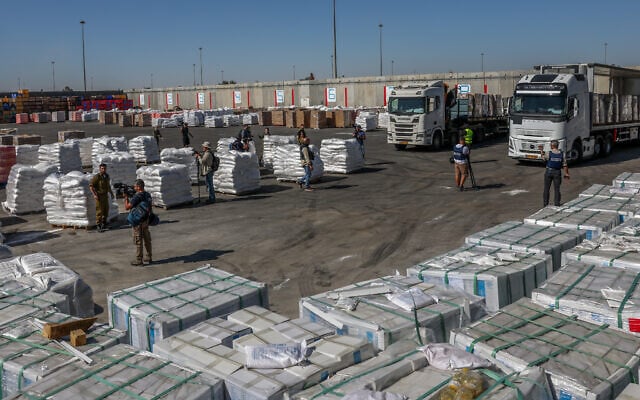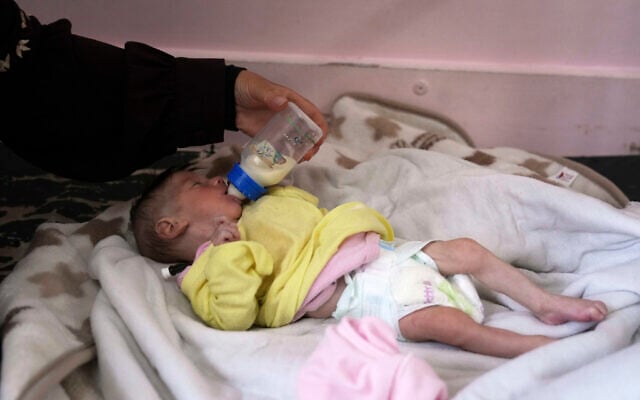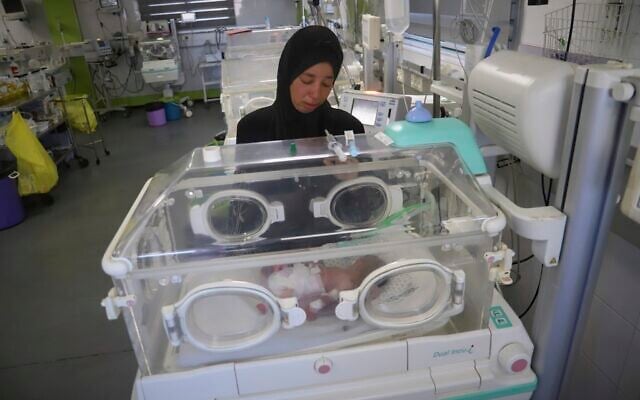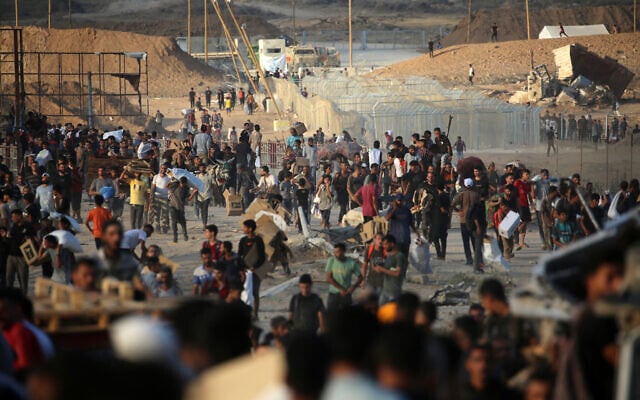


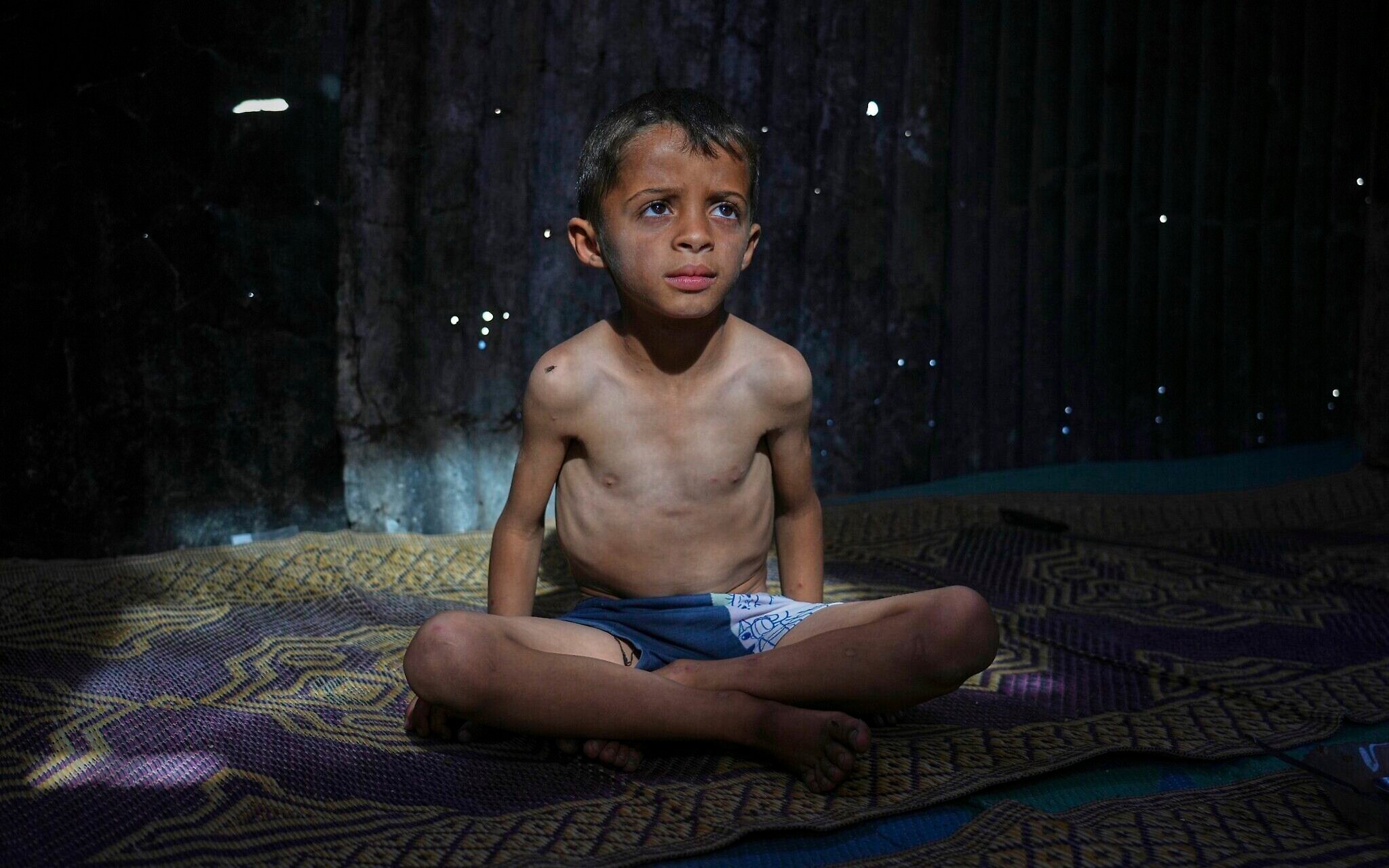
Israel is hampering the delivery of much-needed baby formula into Gaza where child malnutrition is climbing to alarming levels, international aid organizations alleged.
Officials from several organizations told the Haaretz daily on Friday that Israel started to impose customs duties on aid purchased outside Israel since partially lifting its blockade in May after 78 days.
The practice is not done by other countries that neighbor conflict zones, including those near Russia. Israel’s Coordinator of Government Activities in the Territories, which facilitates the entry of aid into Gaza, denied collecting customs on aid brought into Gaza.
COGAT said it does not prevent or restrict the entry of “baby food, including milk substitutes and baby formula, into the Gaza Strip.”
“As evidence, in recent weeks more than 1,400 tons of baby food have been brought in through the crossings, as per the requests of international aid organizations, following stringent security checks,” said the unit.
The officials cited by Haaretz said Israeli authorities are pushing aid organizations to buy their products in Israel, even though they are much more expensive than they would be in the West Bank, Jordan or elsewhere.
The policy has left some aid organizations unable to afford baby formula and other essential products, humanitarian officials told Haaretz.
One hundred and thirty-six countries have signed onto an international agreement that urges nations not to collect customs duties on humanitarian aid, but Israel is not a signatory.
UN Palestinian refugee agency UNRWA, which Israel has accused of collaborating with Hamas, said it has been examining the state of Gazan children’s diet by gathering data on the arm circumference of tens of thousands of children.
The data showed that the percentage of children suffering from malnourishment rose from 5.2% during the ceasefire at the beginning of 2025 to 10.7% in recent days.
The UN’s World Health Organization said 90% of pregnant and nursing mothers suffer from severe malnutrition, which harms their ability to breastfeed, thereby requiring their children to use baby formula that is in limited supply.
Even the formula that does make it into Gaza requires clean water for preparation, but the lack of access to clean water has exposed children to infections.
Doctors Without Borders warned Friday that its teams on the ground in Gaza were witnessing surging levels of acute malnutrition.
“The situation is beyond critical,” said Joanne Perry, a doctor with the group.
The medical charity, known by its French acronym MSF, said levels of acute malnutrition had reached an “all-time high” at two of its facilities in the Gaza Strip.
“MSF teams are witnessing a sharp and unprecedented rise in acute malnutrition among people in Gaza,” the organization said in a statement. “In al-Mawasi clinic, southern Gaza, and the MSF Gaza Clinic in the north, we are seeing the highest number of malnutrition cases ever recorded by our teams in the Strip.”
MSF said it now had more than 700 pregnant and breastfeeding women and nearly 500 children with severe and moderate malnutrition currently enrolled in ambulatory therapeutic feeding centers in both clinics.
The numbers at the Gaza City clinic had almost quadrupled in under two months, from 293 cases in May to 983 cases at the start of this month, it said.
Injured malnourished at MSF clinics were “begging for food instead of medicine, their wounds failing to close due to protein deficiency,” the agency said.
Far more babies were also being born prematurely, while six-month pregnant women often weighed no more than 40 kilos (88 pounds), it said.
“The existence of malnutrition in Gaza is the result of deliberate, calculated choices by the Israeli authorities,” said MSF. It accused Israel of having decided to “restrict the entry of food to the bare minimum for survival, dictate and militarize the means of its subsequent distribution, all while having destroyed the majority of local food production capacity.”
Mohammed Abu Mughaisib, MSF’s deputy medical coordinator in Gaza, also said in a statement that “the starvation of people in Gaza is intentional” and that “it can end tomorrow if the Israeli authorities allow food in at scale.”
“This is the first time we have witnessed such a severe scale of malnutrition cases in Gaza,” he said.
Israel has denied using starvation as a weapon of war, and accused Hamas of hijacking aid deliveries.
Starting in March, Israel blocked deliveries of food and other crucial supplies into Gaza for more than two months, leading to warnings of famine across a territory devastated by Israeli bombing since the Hamas onslaught of October 7, 2023, which sparked the war.
Israel lifted the blockade at the end of May amid a renewed offensive in the Strip. As part of the resumption, the Israeli- and US-backed Gaza Humanitarian Foundation has opened four distribution sites in south and central Gaza, in a bid to circumvent Hamas in the supply of aid.
The UN and other humanitarian groups have rejected the GHF, saying it endangers Gazan aid seekers. There have been near-daily reports of mass-casualty incidents near GHF sites, though the agency denies that any aid seekers were killed in the immediate vicinity of its sites.
On Friday, the UN said at least 615 people have been killed near GHF sites since May.
The IDF responded that it had issued instructions to troops in the field “following lessons learned” after reports of deadly incidents at GHF distribution facilities.

